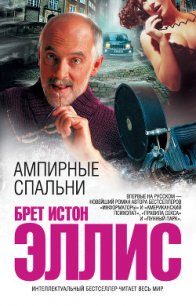Death Trick - Stevenson Richard (читать книги онлайн бесплатно без сокращение бесплатно .txt) 📗
I said, "Yes and no. It'd still be better if I could sit down with Billy. For an hour, that's all."
"I—I'm sorry, Mr. Strachey. Good luck to you. I mean that. Maybe I'll see you in Albany."
"You realize the Albany police will be looking for you when you come back. You'll meet Sergeant Bowman, a man with his quirks of manner and viewpoint. You won't like him."
"I realize that."
"What will you tell him?"
"I'll lie. I've learned how to do that. Good-bye, Mr. Strachey."
She hung up.
Timmy had been up on one elbow listening to my end of the conversation. He said, "So?"
I slumped into the easy chair near the daybed where Timmy lay and recounted what Chris Porterfield had told me. Then I told him what I thought I'd learned.
"So, maybe you know now where Blount and Porterfield are," he said. "But not who the killer is. Get moving, Strachey."
I said, "I'll take what I can get when I can get it. Like Blanche said, 'Tomorrow is another day.'"
"Scarlett said that. Blanche said—something else."
"'Here's looking at you, kid'?"
"Close enough. I'm tired. I'm going to sleep."
"I'll join you."
11
In the morning i went to the Albany public library and dug out the Times Unions for the late fall of 1970, a little over a year after Billy Blount and Chris Porterfield would have been committed to Sewickley Oaks. What I was looking for, or thought I was looking for, was not in the index, and I had to slide the microfilm around for thirty or forty issues until I found the short article in the Tuesday, November 24, edition.
ALBANY DUO ESCAPES MENTAL FACILITY
New Baltimore—Two teenage inmates at Sewickley Oaks, an exclusive private mental institution on Ridge Road, escaped from the medium-security section of the establishment late Sunday night. William Blount, 18, and Christine Porterfield, 18, whose families live in Albany, fled a residential building through a heating tunnel and are believed to have been driven away by unknown persons who apparently aided the two in other aspects of the escape.
According to the local police, a chain securing a door to the tunnel had been cut through from the tunnel side. Officials say the escape appeared to have been carefully planned and executed.
Blount and Porterfield were discovered missing Monday morning when they failed to show up for breakfast, and a search was undertaken. Later, an area resident told police he had been driving on Ridge Road just past midnight Sunday and saw five young people emerge from nearby woods and enter an older model Plymouth station wagon. Two of the five were bearded and "looked like hippies," the witness said.
Dr. Nelson Thurston, Sewickley Oaks administrator, described the escapees as "mentally troubled" but not dangerous.
State police are assisting in the search for the two.
I made notes on the article, then drove over to Billy Blount's apartment building on Madison. I wanted to check
something I should have checked before. I waited around on the front stoop until the sidewalk was clear, then felt my way through the lock. I still had my lobster pick in hand when I arrived at the door to Blount's third-floor apartment, but I didn't need it. The door had been jimmied open, crudely, messily, as if with a crowbar.
I stepped inside and listened. There was no sound except that of the traffic down on Madison. I checked the rooms and found them as I'd left them on Friday.
I knelt by the low bookshelves and pulled out the hardback copy of Fanon's The Wretched of the Earth. Inside the front cover was a hand-written inscription: "Billy—This will explain some things—From your friend, Kurt Zinsser—December 15, 1970." I copied the words onto my pad.
Back in Blount's bedroom, I sat on the edge of his mattress and tried the phone. It was still connected and probably had another week or two before New York Telephone would be galvanized into frenzied plug-pulling by the unpaid bill. I dialed the Albany Police Department, and while I waited to be put through to Sergeant Bowman, I noticed it: Billy Blount's phone book was not where I had found it on Friday, and left it, beside the telephone.
"Bowman!" He made his own name sound like an accusation.
"Don Strachey. I want to report a breaking-and-entering."
"You'd better watch your step with me, Strachey! I warned you once and I'm warning you again. Now, what do you want?"
"Billy Blount's apartment has been broken into. With a wrecking ball, I think. His phone book with his friends' numbers written on it is missing. I'm there now."
"You think I'm a goddamned idiot. You're covering for yourself. You did it. You're lying."
"Wrong. I'm tidier than this. I'm a bachelor, remember? Obsessively neat." I wished Timmy were there to hoot with merriment over that one. "This is definitely the work of a sloppy amateur, except all he walked off with was Blount's phone book. I think that's interesting, don't you?"
"Yes. I do."
"And puzzling."
"That, too."
"I thought you'd want to know, and to check it out around here. See how helpful I'm being? Before this is over, Ned, I'm going to earn your respect and devotion." He made a strangling sound. "Anyway, what's happening down there on your end of things?"
"Listen, Strachey, I wanted to talk to you about that— about "my end of things.'" The sarcasm was like gelignite. "This Al Douglas you sent me chasing after—Bowsie. None of the Greyhound perverts ever heard of the guy."
"Did I say Greyhound? I meant Trailways. It's the Trail-ways station where Al hangs out. Jesus, I'm sorry. Really."
A silence. "Strachey—are you jerking me around? You oughtn't to do that. You want names of people who've tried, I'll provide references. They'll tell you. Don't do it. Tell me you're not fucking me up the ass." He made a gagging sound and muttered something else.
"Consider yourself told," I said. "With you, Ned, I'm straight." My palms were sweating. I held out my free hand to see how steady it was. Not too. I said, "What'd you get from the airlines at La Guardia? Anything?"
"Nah. Blount either used a phony name or didn't fly out of there at all. I hope, for your sake, Strachey, it was the first. You're on trial in this town, you know."
Maybe he just talked like a South End Torquemada and when push came to shove, he'd reveal a heart and mind worthy of Learned Hand. But I supposed he wouldn't. I said, "I'll be in touch, Sergeant. Have a nice day." I hung up.
I searched the apartment to make the sure the phone book hadn't simply been moved to another spot. It hadn't. It was gone.
Back at the phone, I made a credit-card call to California. It was just eight-thirty Pacific Time, so I tried the home number of the party I wanted. I'd known Harvey Geddes since army-intelligence days, and we'd stayed in touch through his coming out and into his years as a fund-raiser and organizer at the Los Angeles Gay Community Services Center in West Hollywood.
"Hello?"
"Harvey—Don Strachey."
"Don, what a surprise! I was just leaving for the center. This is great! Are you in LA?"
"I wouldn't mind if I were. I'm in Albany up to my brain pan in a murder case."
"Too bad. I'd love to see you. Who's your client?"
The parents of the accused. Except I doubt he did it. He's skipped, and I've got to locate him and find out what he knows. That's why I'm calling."




